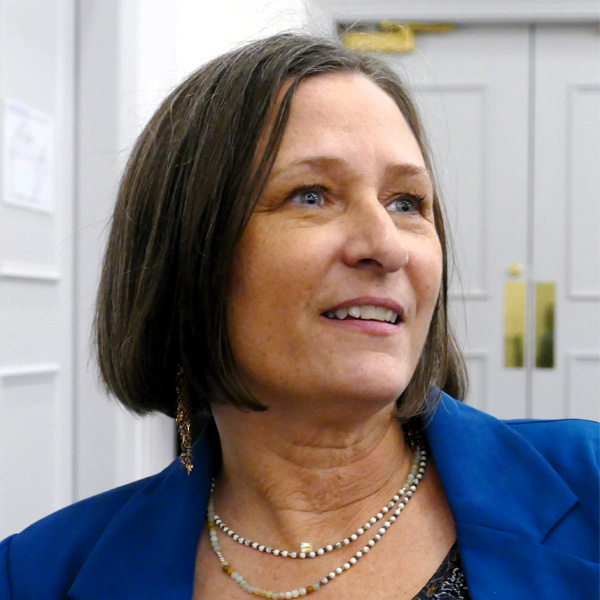Below is a summary of the agenda items scheduled to be brought to a vote at the PJM Markets and Reliability Committee and Members Committee meetings Nov. 21. Each item is listed by agenda number, description and projected time of discussion, followed by a summary of the issue and links to prior coverage in RTO Insider.
RTO Insider will cover the discussions and votes. See next week’s newsletter for a full report.
Markets and Reliability Committee
Consent Agenda (9:05-9:10)
D. Endorse proposed revisions to Manual 3: Transmission Operations drafted through the document’s periodic review. The changes aim to align the manual with existing practices on facility ratings, clarify the process for revising on-time transmission outages, and update several links and notes.
E. Endorse proposed revisions to Manual 10: Prescheduling Operations proposed through its periodic review. The language would clarify how inverter-based resources should report the amount of output that is offline during an outage into eDART and stipulate that forced outages must be completed before work can begin on planned outages.
F. Endorse proposed revisions to Manual 28: Operating Agreement Accounting to conform with a FERC order on lost opportunity costs (LOC) for intermittent resources (ER23-2484). The existing LOC credit calculation for wind generators would be extended to solar, hybrid and storage resources as well. (See “Stakeholders Endorse Expansion of Lost Opportunity Cost Credits for Renewables,” PJM MIC Briefs: Nov. 8, 2024.)
G. Approve a proposal to sunset the Clean Attribute Procurement Senior Task Force (CAPSTF). PJM proposed sunsetting the group, stating that it has completed its work and discussions of creating a market to trade clean energy attributes has shifted to discussions between states. (See “PJM Revives Proposal to Sunset Clean Attribute Procurement STF,” PJM MRC Briefs: Oct. 30, 2024.)
H. Endorse revisions to the tariff, Reliability Assurance Agreement (RAA), and Operating Agreement (OA) proposed by the Governing Document Enhancement & Clarification Subcommittee (GDECS) in October. The changes include removing sunset and obsolete terms and references, correcting drafting errors and clarifying instructions.
Endorsements (9:10-10:15)
1. Hybrids Phase 3 (9:10-9:30)
PJM’s Maria Belenky will present the third phase of PJM’s rules for hybrid resources, which focuses on non-inverter generators paired with storage. Participation in the energy and ancillary service markets for such hybrids would be akin to the RTO’s Energy Storage Resource Participation Model, while capacity accreditation would center on the battery. The package also includes several clarifications and revisions to the rules for all hybrid resource classifications, such as how the storage component can shift between open- and closed-loop status. (See “Third Phase of Market Rules for Hybrid Resources Endorsed,” PJM MIC Briefs: Oct. 9, 2024.)
The committee will be asked to endorse the proposed solution and corresponding tariff and OA revisions.
Issue Tracking: Hybrid Resources Enhancements (Hybrids Phase 3)
2. Enhancing Capacity Interconnection Rights (CIR) Transfer Efficiency (9:30-10:15)
A. PJM’s Ed Franks will review the main motion to establish an expedited process for transferring capacity interconnection rights (CIRs) from a deactivating generator to a new resource. The proposal would establish a nine-month parallel process that studies the grid impacts of the new resource based on the latest Phase 2 or 3 models being used to evaluate projects in the overall interconnection queue. Replacement resources with minor network upgrades would be permitted to proceed, but those with extensive cost allocations would be placed into the general queue. (See PJM Stakeholders Endorse Coalition Proposal on CIR Transfers.)
B. Consumer Advocates of the PJM States (CAPS) Executive Director Greg Poulos is set to move an alternative proposal on behalf of the Delaware Division of the Public Advocate, which would ask the MRC to consider a design from the Independent Market Monitor where PJM would administer a competitive process for awarding CIRs to projects that would mitigate any transmission violations associated with a resource deactivation.
The committee will be asked to endorse one of the proposed solutions and corresponding tariff revisions.
Issue Tracking: Enhancing Capacity Interconnection Rights (CIR) Transfer Efficiency
Members Committee
Consent Agenda (11:05-11:10)
B. Endorse proposed tariff and OA revisions to eliminate the High/Low and Marginal Cost Proxy interface pricing options due to disuse. PJM stated that the last time the marginal-cost proxy was used was in July 2019, when Duke Energy Process terminated its dynamic interface. Nodal aggregate pricing now is used for interface pricing, with the belief that it creates more accurate price signals. (See “PJM Proposes Elimination of Two Interface Pricing Models,” PJM MRC Briefs: Sept. 25, 2024.)
Issue Tracking: Interface Pricing for Non-Market Entities

